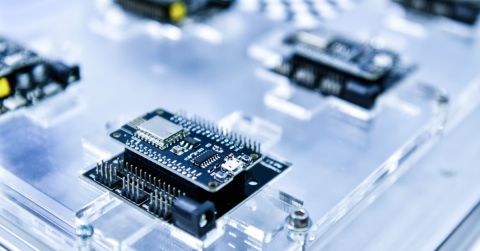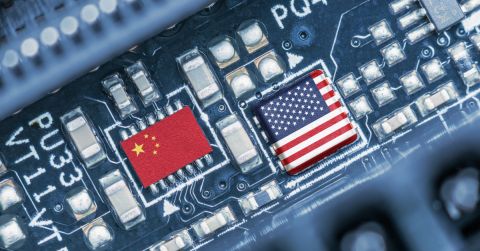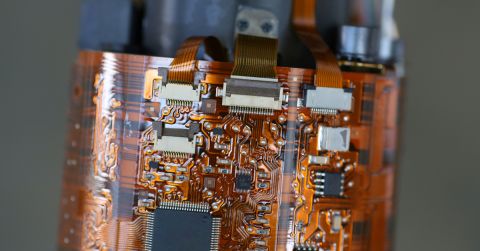AI Chips at the Crossroads: Navigating Innovation, Geopolitics, and Sustainability in the Semiconductor Race
The Race for AI Chip Dominance
The integration of Artificial Intelligence (AI) across multiple market sectors has generated a remarkable surge in demand for AI chips and electronic components, revolutionizing the electronics component market. This demand is intimately linked to the swift evolution of AI applications that need specialized processors adept at executing complex tasks such as machine learning and deep learning. Consequently, this evolution exerts unprecedented pressure on supply chains, compelling a thorough examination of market dynamics, geopolitical scenarios, and the critical raw materials impacting the memory market and beyond.
At the epicentre of this escalating demand are AI chips, crucial for the rapid data processing and analysis that AI applications demand. The AI chip market is a battleground of intense competition among semiconductor industry behemoths like NVIDIA, Intel, and AMD, as well as tech giants such as Google with its Tensor Processing Units (TPUs) and Apple's Neural Engine. This vibrant competitive landscape is further augmented by start-ups and emerging players who introduce innovative processing architectures aimed at enhancing computational efficiency and minimizing energy consumption, fostering a wave of innovation within the sector.
The quest for AI chip dominance also unfolds significant geopolitical and technological rivalries, particularly between superpowers like the United States and China. This competition transcends technological innovation, extending into strategic manoeuvres over the control of essential raw materials and manufacturing capabilities critical for semiconductor production. The scarcity and geographical concentration of rare earth elements, indispensable for these semiconductors, introduce complexity and risk, spotlighting supply chain vulnerabilities and the potential for geopolitical conflicts.

The Impact on the Memory Market
This surge in demand for AI chips has a profound impact on the memory market, particularly affecting sectors dealing with Dynamic Random Access Memory (DRAM) and NAND flash memory. The extensive memory requirements of AI applications have spurred a significant increase in the demand for high-capacity, high-performance memory solutions. This demand presents challenges such as supply chain constraints, the imperative for technological innovation, and escalating costs. These issues necessitate strategic foresight and adaptability from industry players, underscoring the need for diversified supply chains, substantial investments in research and development, and international cooperation to ensure a stable supply of critical materials.
AI Chip Manufacturing & AI Chip Demand
Taiwan Semiconductor Manufacturing Company (TSMC), the world's leading contract chip manufacturer, exemplifies the challenges and opportunities within this evolving landscape. TSMC, which produces AI chips for Nvidia crucial for powering sophisticated models like OpenAI's ChatGPT, contends with competition from industry giants like Intel and Samsung, geopolitical strains, and the challenge of scaling production capacity and resources to meet the soaring demand. These challenges are compounded by the necessity for considerable capital investments and innovation, alongside a commitment to environmental sustainability.
The capacity of manufacturers, governments, and the international community to navigate these complexities will be pivotal in shaping the future of the electronics industry and ensuring the sustainable advancement of AI applications. For companies like TSMC, overcoming competition, geopolitical risks, and the pressing need for rapid expansion and technological breakthroughs, all while maintaining standards of environmental sustainability, is paramount.
Several factors contribute to the potential for continued growth in AI chip demand, including increased adoption of AI technologies across various industries, diversification of AI workloads, advancements in AI research, and the growth of Edge AI and IoT. However, challenges such as geopolitical tensions, supply chain disruptions, and shifts in market dynamics, as well as technological advancements in alternative computing architectures, could impact the semiconductor industry.
The escalating demand for AI chips profoundly influences the electronics component markets, fostering innovation while introducing formidable challenges. The semiconductor industry's strategic and flexible approach will be crucial in leveraging the opportunities presented by the growing demand for AI chips, securing a competitive edge in an ever-evolving market landscape. The future of AI chip development and the electronics component market pivots on a delicate balance between innovation, geopolitical strategy, and environmental sustainability, highlighting the complex interplay between technology and global politics in shaping the next generation of AI applications.
Navigating the challenges of supply chain constraints, technological innovation pressure, intensifying competition, regulatory hurdles, rising costs, global economic factors, and environmental concerns requires strategic planning and adaptability. As the demand for AI chips continues to grow, manufacturers and governments alike must work collaboratively to ensure the sustainable advancement of AI technology, balancing the drive for innovation with the imperatives of geopolitical strategy and environmental stewardship.












